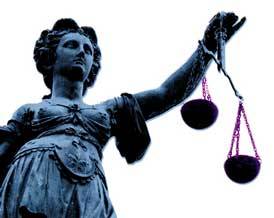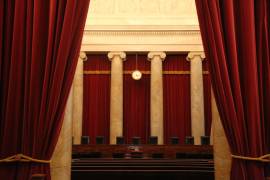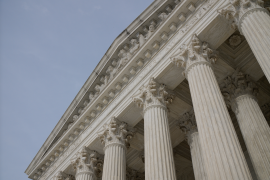
Obama Appoints Record Number of Gay Judges, but Senate Obstruction Persists
Blog Search
Today, it is more important than ever that our courts reflect the growing diversity of our country, but we have a long way to go. There are nearly 900 federal judges in the U.S., and most are white men.
Federal courts are charged with providing everyone with equal access to justice, and yet justice has not always been a reality for some. A diverse judicial system serves not only to improve the quality of justice, but to boost public confidence in the courts.
During his first term, 44 percent of President Obama’s federal judicial nominees were women—chiefly among them his only Supreme Court appointments, Justices Sonia Sotomayor and Elena Kagan. Nearly 40 percent of his nominees were people of color, and only 38 percent were white males.
President Obama has nominated an unprecedented nine openly gay nominees to the federal bench.
At the start of the new Congress, President Obama renominated 33 judicial candidates, including the first gay African-American judge, William L. Thomas, and lesbian Latina judge, Nitza Quiñones Alejandro. If confirmed by the Senate, they will join openly LGBT judges Pamela Ki Mai Chen, Michael Fitzgerald, Paul Oetken, Alison Nathan and Deborah Batts on the federal district courts.
Yesterday, President Obama announced the nomination of Todd Hughes to the Court of Appeals for the Federal Circuit. If confirmed, Hughes would become the first openly gay appeals court judge in the country.
While Hughes’ confirmation would make judicial history, this is not the first time that President Obama has nominated an openly gay attorney to a federal court of appeals. In 2010, President Obama nominated Edward C. DuMont to the Federal Circuit. After his nomination languished for 18 months with no action from the Senate, DuMont withdrew his name from consideration.
This highlights the relentless obstruction in the Senate of federal judicial nominees. This delay and dysfunction has given rise to a judicial vacancy crisis that means many Americans wait months or even years to get a chance to stand up for their rights in court.
Federal courts issue decisions that affect nearly every aspect of life for LGBT people. With the Supreme Court deciding less than 100 cases a year, it is the appellate courts that have the final say in many of the most important cases. Likewise, federal district courts provide the gateway for achieving broader civil rights victories by issuing findings of fact that frame the cases and legal issues going forward.
To find out more about how Lambda Legal is fighting for the rights of LGBT people and people with HIV in federal courts and how you can take action to address the judicial vacancy crisis take a look at our Federal Courts Matter guide and Gear Up Tookit.
Previously: The importance of LGBT judges.




